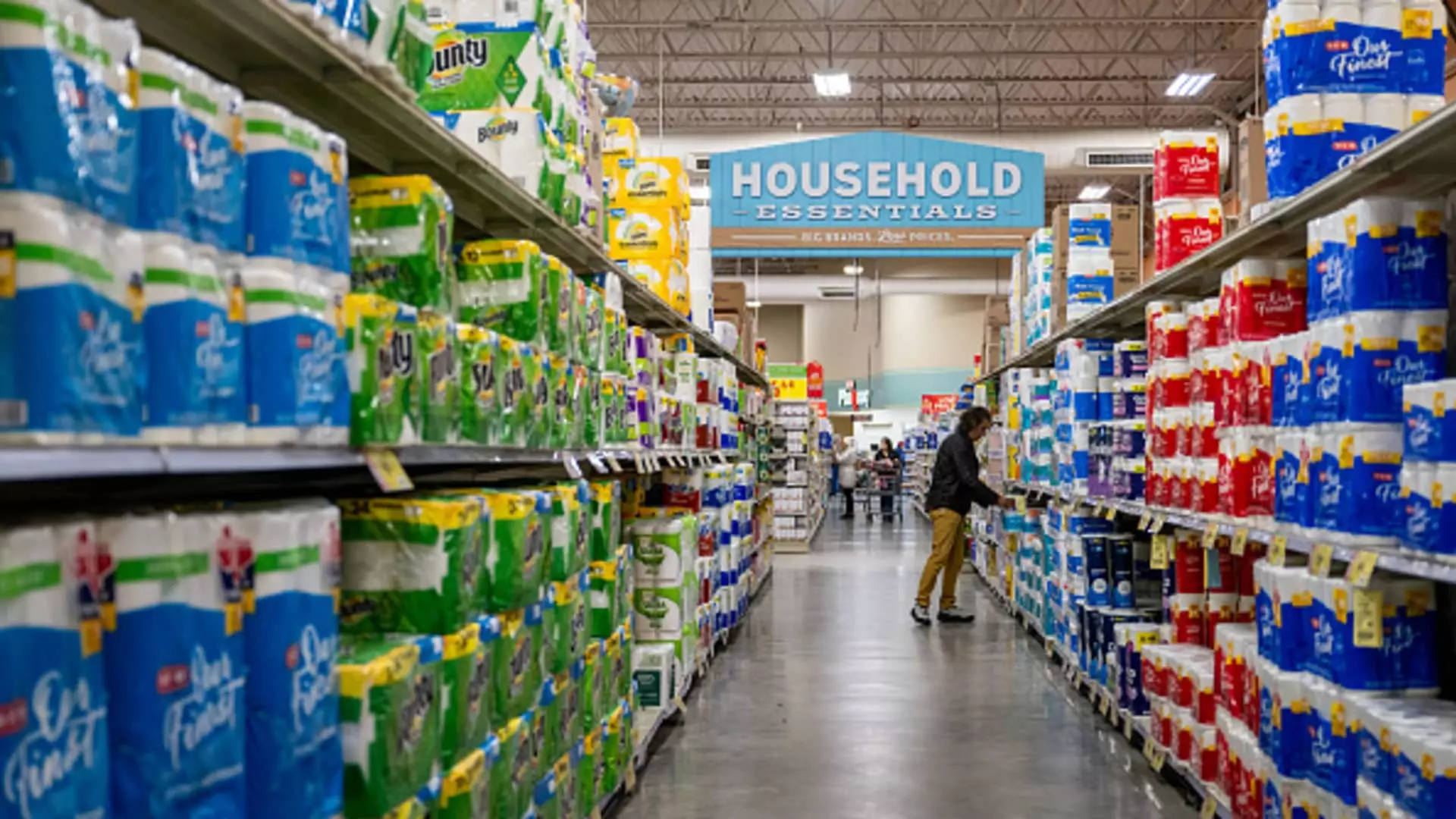As consumers prepare to face rising prices on everyday essentials, a turbulent storm looms over the American market thanks to the Trump administration’s new tariffs. These tariffs, which aim to rejuvenate domestic employment by penalizing imports from over 180 countries, have consequences that extend far beyond the boardrooms of multinational corporations. Shoppers will soon find themselves grappling not just with increased prices for coffee, bananas, vanilla, and toilet paper, but also with the logic behind such policies that appear more reactionary than well-structured.
This ill-conceived America First Trade Policy might seem like a noble pursuit on the surface, yet it overlooks a fundamental aspect of our economy: the intricate web of global supply chains that allow consumer goods to be accessible and affordable. The Consumer Brands Association (CBA) asserts a truth that resonates across grocery aisles: key ingredients, essential for food and household products, simply aren’t harvested domestically. The pursuit to bring jobs back to America could inadvertently sow chaos in the lives of everyday people, pushing essential goods out of reach.
The Fragility of Domestic Supply Chains
Tariff advocates appear to assume that the U.S. can simply pull a lever and restore its agricultural might. Yet, the ugly truth is that decades of agricultural changes, coupled with the harsh realities of climate limitations, mean that many staples of American life cannot flourish on home turf. For instance, with 40% of bananas entering the U.S. from Guatemala, shoppers will face a 10% price hike that compounds the burden of rising living costs.
The numbers don’t lie: Madagascar, the source of more than three-quarters of U.S. vanilla imports, will be slapped with a staggering 47% tariff. With prices for this already significant culinary delight on a trajectory to soar even higher, it leaves one to ponder whether the pursuit of patriotism in trade is worth depriving consumers of the flavors they cherish. The changes initiated by the tariffs may look good on paper, but they have real consequences on the ground, where your average American family is left reeling from the price hikes.
The Ripple Effect on Everyday Products
The prospective tariffs extend their reach beyond just culinary delights. Ordinary household staples such as toilet paper, diapers, and personal care items will also be impacted. Manufacturers are poised to pass the tariffs straight onto consumers, who will pay the price for these punitive measures. The necessity of everyday goods will take on a new meaning as limited supply leads to soaring costs, while the assumption that domestic producers can simply replace imports is naive.
Consider the reality of the wood pulp and palm oil sectors, where the U.S. imports a significant portion of its supplies. American consumers will see their grocery bills swell as the tariffs hit the supply chain for these often-overlooked items. The rise of household expenses is nothing short of a crisis for families already grappling with the financial implications of inflation. Policy decisions made far from the dining room table may leave those same tables devoid of essential goods.
Trading Safety for Short-term Gains
Markets reacted to these announcements by fluctuating: the stock of consumer staples surged while riskier investments took a hit. It is a troubling reality when essentials become safe bets in uncertain economic times. The rise in stock prices of companies like Procter & Gamble or Coca-Cola indicates a heartbeat in the stock market, yet it obscures the very real consequences faced by those who need these products the most.
The decision-makers may rest comfortably knowing their companies can absorb tariffs through limited price adjustments, but these ‘targeted strategies’ do little to alleviate the burdens felt by the average consumer. As businesses adjust, lives become increasingly affected by their decisions. It’s a bewildering mirage of success masking a pressing crisis for real families living paycheck to paycheck.
In the relentless pursuit of economic nationalism, American policymakers must grapple with the story told not by economists but by everyday citizens struggling to make ends meet. The intertwining of trade, consumer access, and domestic stability is not merely a political exercise; it is the fabric of ordinary lives disrupted by choices made in the name of patriotism but rooted in a misunderstanding of economic interdependence.

Leave a Reply